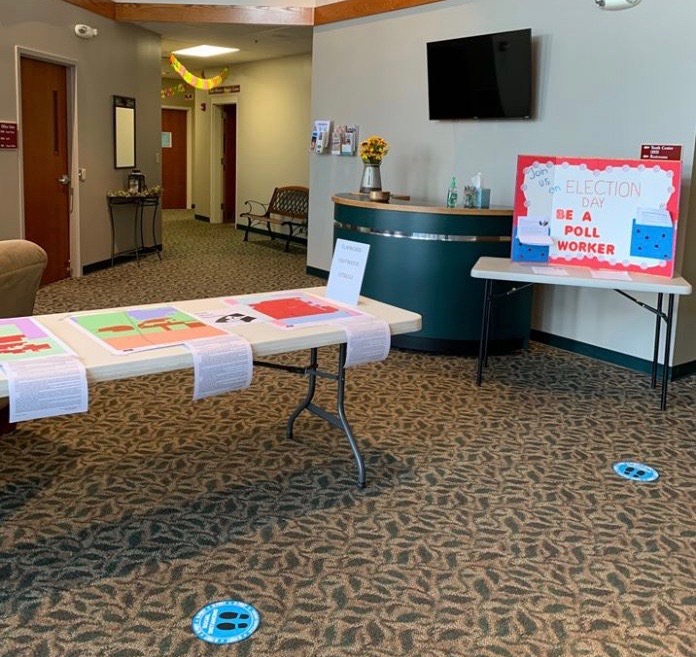By Susan Tebben
The state’s controlling board has designated money for schools, election boards and COVID-19 testing, but members of those departments spent most of their time Monday answering questions on future plans.
In their regular meeting, the legislative body that distributes funding to governmental entities approved funding to train election precinct officials, and the distribution of CARES Act funding for municipalities, educational service centers, specialized education, and more money for remote learning students.
As Ohio Secretary of State Frank LaRose’s chief of staff Merle Madrid made the case for more than $578,000 in election training, state Rep. Jack Cera, D-Bellaire, took the opportunity to get an update on absentee ballot postage.
“I think we all should be thankful that the voters of Ohio have listened and are moving in an expeditious manner to get their requests in,” Cera said.
Madrid said the office plans to request an appropriation from the controlling board at its next meeting in September, that would pay for the postage. Madrid said the office had pursued the request before Monday’s meeting, but it did not end up on the agenda.
Madrid agreed with Cera that approval at the controlling board’s Sept. 14 meeting would create a tight timeline between receiving the funding and sending out the ballots.
Absentee ballots will start going out to voters the week of Oct. 6, the same day that early voting begins. The deadline for voter registration is Oct. 5.
If the funding is approved, the Secretary of State’s Office will send the postage to local boards of election, which will then need to affix the postage to ballots.
“Our boards of elections are more adaptable and better suited to make adjustments on the fly than perhaps any other state,” Madrid said.
Two members of the Ohio Department of Health were asked about statewide COVID-19 testing, for which the controlling board approved the $97 million in CARES Act funding. Anthony Perry, chief financial officer for ODH, said funding the pop-up sites throughout the state staffed by members of the Ohio National Guard should mean residents pay nothing for the testing.
“Really anybody should be able to get tested if they so choose,” Perry said.
The controlling board also approved $175 million in funding for local governments across the state, through undistributed CARES Act funding. This measure was one of three late additions to Monday’s board agenda. The other two were $9 million going to the Department of Job and Family Services to allow child care for school-aged children currently in districts starting the year remotely, and $18 million from the Governor’s Emergency Education Relief Fund (also a CARES Act grant) for educational service centers, county boards of developmental disabilities, and the Ohio schools for the blind and the deaf.
“These entities did not receive the larger elementary and secondary school relief funds that were awarded back in June, that were also part of the larger CARES Act,” Aaron Rausch, director of the Ohio Department of Education’s Office of Budget and School Funding, said during the meeting.
Other funding approved during the meeting related to the Broadband Ohio Connectivity Program grants to school districts, which Rausch said will likely have to be prorated to stay within the $50 million boundaries approved by the controlling board. He did not have a specific number of received applications available.





